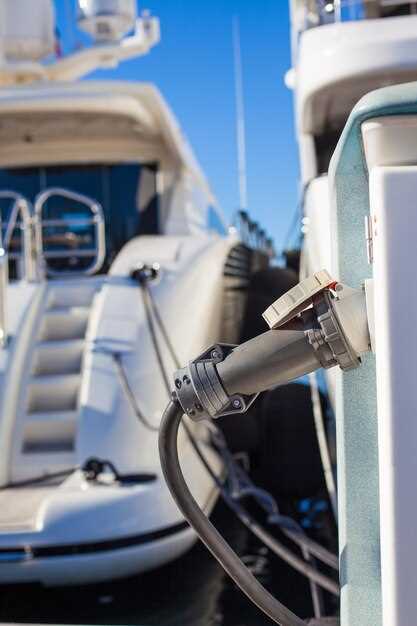
Maintaining the fuel system of your boat is crucial for ensuring smooth operation and enhancing the longevity of your marine vehicle. Any disruption or failure in the fuel system can lead to significant problems, potentially stranding you on the water. Recognizing the warning signs of fuel system issues early can save you time, money, and prevent dangerous situations.
Common indicators of fuel system complications include erratic engine performance, such as stalling or difficulty starting the engine. If you notice a sudden decrease in power or unusual noises coming from the engine, these may also signal underlying fuel system problems. Additionally, frequent fuel filter clogs or visible contamination in the fuel tank should prompt immediate inspection.
Other signs to watch for include fluctuations in fuel pressure, which can cause poor acceleration or an inability to maintain speed. If you observe that your boat consumes more fuel than usual, it may point to an inefficient fuel system. Understanding these symptoms is vital for effective maintenance and repairs, ensuring that your boat’s fuel system remains in optimal condition.
Difficulty Starting the Engine

Difficulty starting the engine is a common indication of potential fuel system issues in marine vessels. When a boat struggles to start, it often points to problems within the fuel delivery system that can hinder performance. One of the primary reasons for this issue is the presence of air leaks in the fuel lines, which can disrupt the proper flow of fuel to the engine. Additionally, clogged fuel filters or fuel injectors can restrict fuel supply, making it hard for the engine to achieve the necessary combustion.
Another factor that may contribute to starting difficulties is the quality of fuel being used. If the fuel has gone stale or contains contaminants, it can cause the engine to misfire or refuse to start altogether. Regular maintenance of the fuel system is crucial to avoid these problems. Ensuring that fuel lines are inspected for leaks, filters are replaced periodically, and high-quality fuel is used can significantly enhance engine reliability.
If you experience a persistent challenge in starting the engine of your boat, it’s advisable to conduct a thorough assessment of the entire marine fuel system. Seeking assistance from a qualified technician can help diagnose and rectify any underlying issues, ensuring optimal performance for your vessel.
Inconsistent Engine Performance and Stalling
One of the most concerning symptoms of fuel system issues in marine vessels is inconsistent engine performance. This can manifest through irregular acceleration, unexpected loss of power, or difficulties in maintaining speed. Such problems can significantly impair the operation of the boat and pose safety risks. Here are some potential causes associated with inconsistent performance:
- Clogged Fuel Filters: If fuel filters become blocked, they restrict fuel flow to the engine, leading to erratic performance.
- Fuel Contamination: Water, debris, or algae in the fuel can disrupt the combustion process, resulting in stalling or reduced power.
- Faulty Fuel Pumps: A malfunctioning fuel pump may not deliver adequate fuel, causing the engine to struggle or stall.
- Leaking Fuel Lines: Any leaks can diminish pressure within the fuel system, affecting engine performance.
Stalling is another critical issue that boat operators may encounter, often caused by similar fuel system problems. Frequent engine stalling can occur in various scenarios, including:
- Low Fuel Levels: Running low on fuel can cause the engine to stall, particularly if sediment is drawn into the system.
- Air Leaks: Air entering the fuel system can disrupt the fuel-air mixture needed for proper combustion, leading to stalling.
- Impaired Fuel Injectors: Clogged or malfunctioning fuel injectors can prevent the correct amount of fuel from reaching the combustion chamber, causing the engine to stall.
To maintain optimal marine engine performance, regular inspection and maintenance of the fuel system are paramount. Addressing any signs of fuel contamination and replacing filters can significantly reduce the risk of inconsistent performance and stalling, ensuring a safer and more reliable boating experience.
Unusual Fuel Smells and Leakage

In a marine environment, the integrity of the fuel system is crucial for safe and efficient operation. Any unusual fuel smells should be taken seriously, as they often indicate potential issues within the system. A strong odor of gasoline or diesel can signal a leak, which may pose significant risks of fire or explosion. This is particularly concerning in enclosed spaces, where fuel vapors can accumulate rapidly.
Identifying the source of these unusual fuel smells is essential. Common culprits include degraded fuel lines, loose connections, or damaged tanks. Regular inspections of the fuel system can help to detect wear and tear before it leads to more significant problems.
In addition to odors, leakage is a critical sign of fuel system issues. Visible pooling of fuel around the engine compartment or on the hull is a clear indicator that the marine fuel system is compromised. Even minor leaks should not be overlooked, as they can escalate quickly. Proper maintenance and monitoring can prevent serious accidents and ensure the smooth operation of the vessel.
Implementing stringent protocols for checking fuel systems will not only enhance safety but also extend the lifespan of marine components. Always address unusual fuel smells and leakage promptly to keep your vessel stable and secure on the water.
